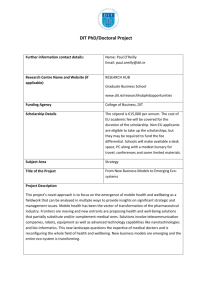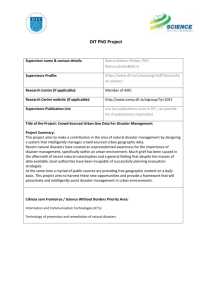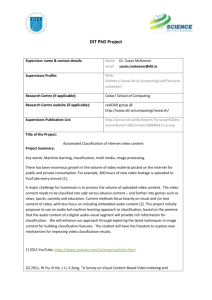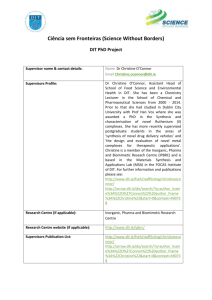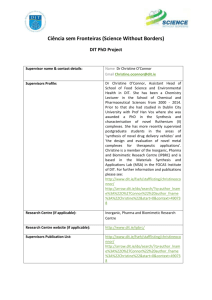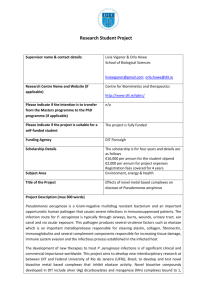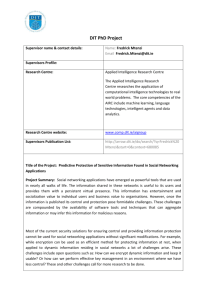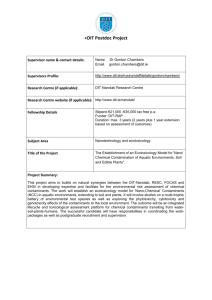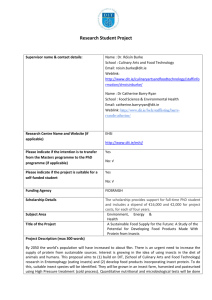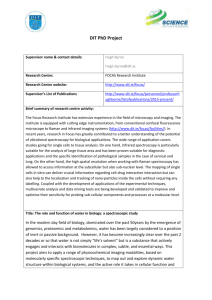Biological Evaluation and Chemical Design of Novel Metal
advertisement
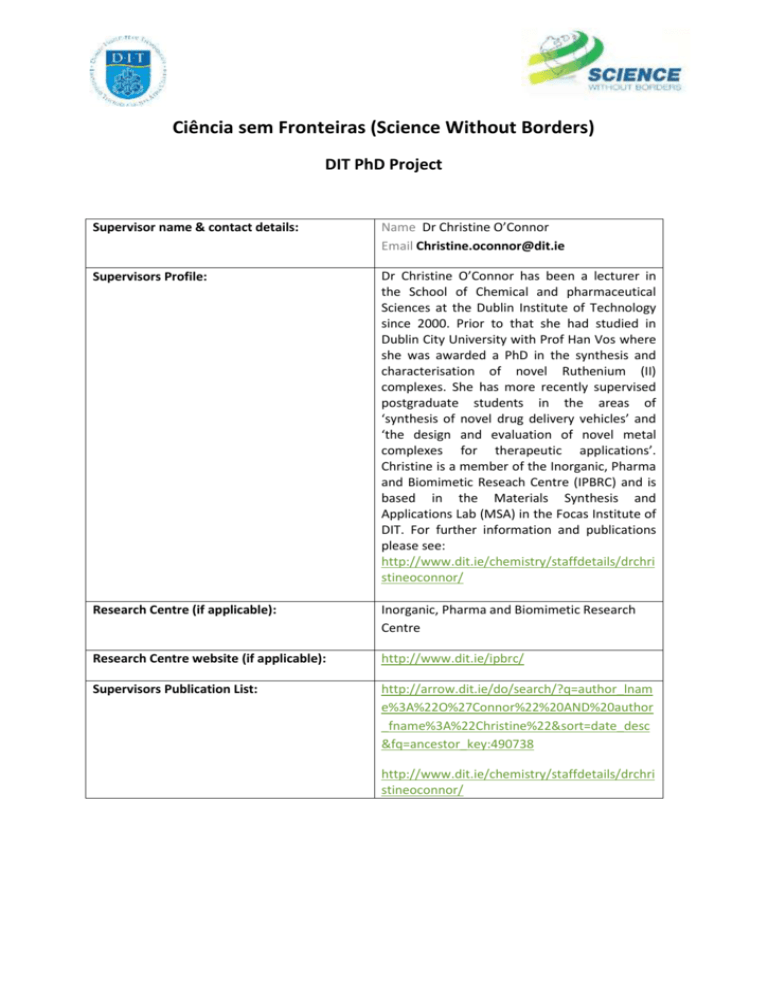
Ciência sem Fronteiras (Science Without Borders) DIT PhD Project Supervisor name & contact details: Name Dr Christine O’Connor Email Christine.oconnor@dit.ie Supervisors Profile: Dr Christine O’Connor has been a lecturer in the School of Chemical and pharmaceutical Sciences at the Dublin Institute of Technology since 2000. Prior to that she had studied in Dublin City University with Prof Han Vos where she was awarded a PhD in the synthesis and characterisation of novel Ruthenium (II) complexes. She has more recently supervised postgraduate students in the areas of ‘synthesis of novel drug delivery vehicles’ and ‘the design and evaluation of novel metal complexes for therapeutic applications’. Christine is a member of the Inorganic, Pharma and Biomimetic Reseach Centre (IPBRC) and is based in the Materials Synthesis and Applications Lab (MSA) in the Focas Institute of DIT. For further information and publications please see: http://www.dit.ie/chemistry/staffdetails/drchri stineoconnor/ Research Centre (if applicable): Inorganic, Pharma and Biomimetic Research Centre Research Centre website (if applicable): http://www.dit.ie/ipbrc/ Supervisors Publication List: http://arrow.dit.ie/do/search/?q=author_lnam e%3A%22O%27Connor%22%20AND%20author _fname%3A%22Christine%22&sort=date_desc &fq=ancestor_key:490738 http://www.dit.ie/chemistry/staffdetails/drchri stineoconnor/ Title of the Project: Biological Evaluation and Chemical Design of Novel Metal Therapeutics. Project Summary: A set of potential anti-cancer/ therapeutic metal based complexes have been prepared at the DIT. The initial biological screening (DNA interaction studies) has commenced but further screening would be required of the complexes and their organic ligands. The tests would include MTT assays (3-(4, 5-Dimethylthiazol-2-yl)-2,5-diphenyltetrazolium bromide) on a variety of cell lines, both healthy cells and cancer cells, to ascertain the level of toxicity on healthy cells and if there is any selectivity for certain cell lines. The biological training would be supported by members of the Radiation and Environmental Science Centre (RESC) and the School of Biological Sciences at DIT. Other studies to be included are drug mapping using confocal microscopy (to ascertain if the compound enters the cell wall and if so where it travels to in the cell) and antimicrobial activity screening against various strains of bacteria. The study may also require some further compounds to be synthesised for comparative studies of what has already been made and published. This will involve organic ligand synthesis and complexation to the corresponding metal centre. All chemical compounds will be prepared in the MSA lab (Materials Synthesis and Applications)and spectroscopic characterisation will be carried out on electronic (UV/Vis, Fluorescence and luminescent lifetimes), vibrational (IR and Raman), NMR, and Mass Spectroscopy’s in the Focas Institute and in the School of Chemical and Pharmaceutical Sciences at DIT. Ciência sem Fronteiras / Science Without Borders Priority Area: Health and Biomedical Sciences
